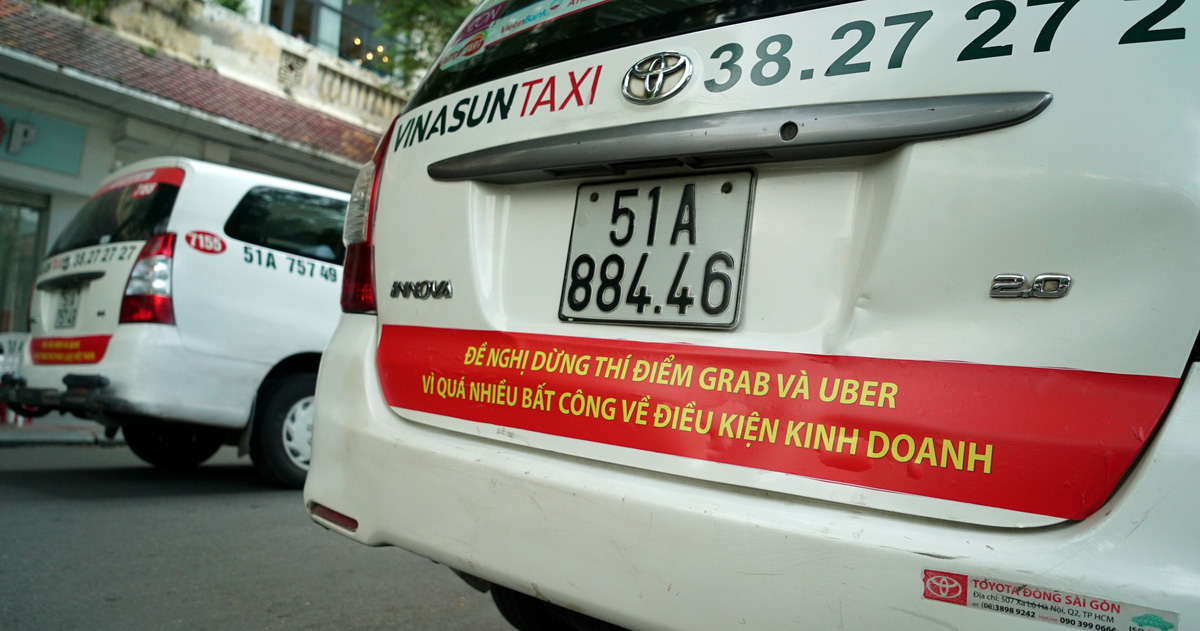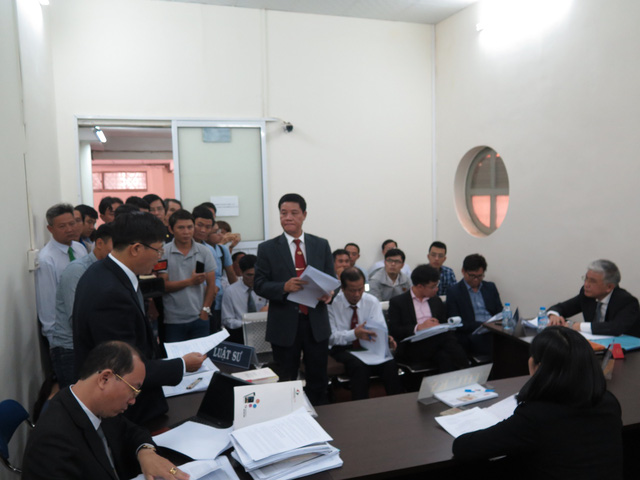An economic court in Ho Chi Minh City assembled on Tuesday to hear a lawsuit filed by local taxi giant Vinasun Corp against GrabTaxi Vietnam in an evidence of continued clash between traditional taxi services and ride-hailing apps in the country.
Vinasun has accused Grab of multiple violations in providing taxi services, causing the taxi company profound losses, whilst Grab maintained that it had conducted its business pursuant to Vietnamese laws and was not responsible for the losses suffered by Vinasun.
Vinasun’s claims
Truong Dinh Quy, deputy general director of Vinasun, submitted to the court documents, photos and videos which he claimed to be evidence of Grab’s illegal practices in Vietnam.
Quy asserted that while Grab had constantly promoted itself as a technology solution provider, in reality it was operating as a transport company offering taxi services, and therefore should be answerable to the same laws and regulations as Vinasun or any other taxi company in Vietnam.
Vinasun had reported growing every year up until 2015, when Grab and Uber started to enter the Vietnamese market, Quy said, citing two independent studies conducted between January 2016 and June 2017.
In 2015, the Ho Chi Minh City-based taxi company reported over VND318 billion (US$14.01 million) in after-tax profit, which dropped to VND295 billion ($13 million) in 2016.
The company went into a tailspin in the first half of 2017, raking in just over VND53 billion ($2.33 million), a 50-percent drop from the same period of 2016.
Over 8,000 employees departed from Vinasun in the same period, causing hundreds of its cabs to gather dust in the company’s garages, the Vinasun executive said at Tuesday’s court.
Vinasun had to comply with 13 different business conditions required of taxi companies, while Grab was subject to only three, he pointed out.
 |
| Two Vinasun taxis bear bumper stickers denouncing Grab and Uber in this photo taken on October 8, 2017. Photo: Tuoi Tre |
Grab’s response
In response to Vinasun’s accusations, a representative of Grab present at the court in Ho Chi Minh City on Tuesday said it was operating in conformity with Decision 14 issued by the Vietnamese Ministry of Transport in January 2016.
The decision allowed Grab to pilot its business model in Hanoi, Ho Chi Minh City, Da Nang, Khanh Hoa and Quang Ninh for two years between January 2016 and January 2018.
Therefore, if Vinasun had suffered from any damages following the issuance of Decision 24, it should have filed a complaint to the transport ministry rather than seek legal actions against Grab, the representative said.
“Grab is well-equipped with the experience and expertise needed to operate the ride-hailing application, and will continue to offer its service in Vietnam as long as the laws allow it to,” he stressed.
The Grab representative added that the company had adhered strictly to Vietnamese law by entering into contracts with its transport partners and collecting personal income tax on their behalf.
He refused a request to submit the contracts as evidence before the court, citing them being “business secrets.”
“If you fail to submit the contracts, on what grounds are you maintaining that Grab has been conforming to Vietnamese laws?” a Vinasun lawyer pressed, to which there was no response from the defendants.
Further questions from lawyers of the plaintiffs regarding Grab’s business operations were also left unanswered.
 |
| A Grab representative speaks at a court in Ho Chi Minh City on February 6, 2018. Photo: Tuoi Tre |
|
‘Disruptive’ pricing According to Vinasun, Grab now has around 17,000 cars in its fleet, an increase from 13,000 as of June 2017. The large number of cars coupled with “disruptive” pricing and promotions has caused profound losses to Vinasun and other taxi companies in Vietnam. “Grab has a charter capital of around VND40 billion [$1.76 million], while cumulative losses from its business operations have amounted to over VND930 billion [$40.97 million]. Such promotions and pricing strategies are disruptive against other competitors,” a Vinasun representative complained. |
Like us on Facebook or follow us on Twitter to get the latest news about Vietnam!



















































